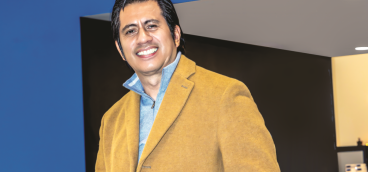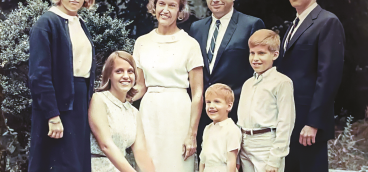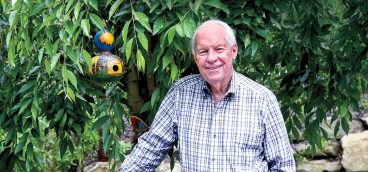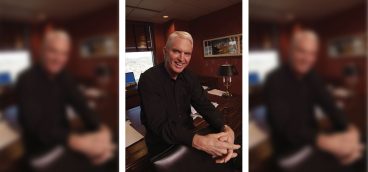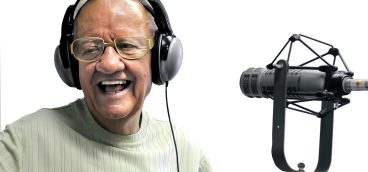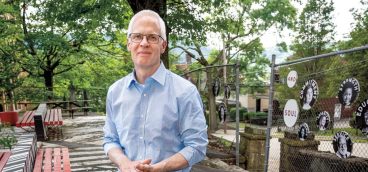An Awkward Introduction to Cyril Wecht
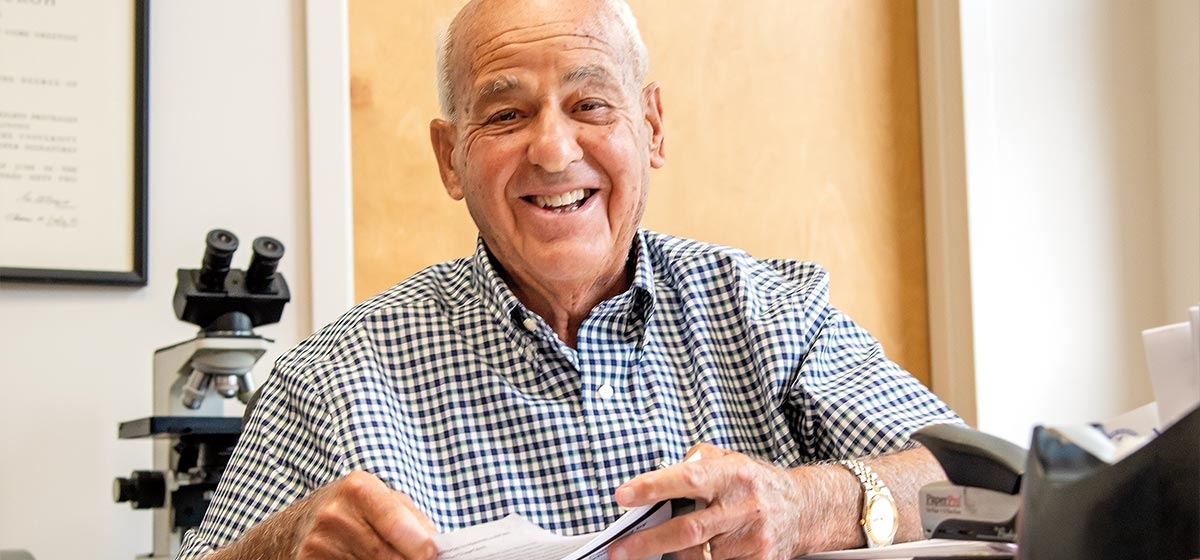
Cyril Wecht’s recent death took me back decades to summer of 1978 and Carnegie Mellon University’s tennis courts. Two white guys dressed in tennis whites had finished playing and sat on the grass. In my early twenties and in law school, I was one of them. The other guy, I’ll refer to as “Tom,” was a political player, a protege of a union boss who held sway over who got hired in state government during Democrat Governor Milton Shapp’s administration. He began his rant:
“What is it with you, a spoiled Shady Side Academy preppie, working for House Leader K. Leroy Irvis, a black guy from the Hill District ? That Harrisburg job you had as the Democrats’ legislative director — it’s not like you came up through the ranks or were approved.”
I didn’t get it. Who other than Irvis should have approved me?
“Well, for starters, the Democratic organization never passed on you. You’ve never done a damned thing for the party. This guy Cyril Wecht is now Allegheny County Democratic Chair. Go see him and volunteer to help the party.“
To shut him up, I relented, telling him it would be a waste. I had heard of Cyril Wecht, doctor, lawyer and medical examiner extraordinaire, with an uncompromising opinion on everything — a total contrast to other Pittsburgh politicians.
The Schwartz and Wecht families had known each other but were not close. I remember my grandfather shaking his head at the mention of the Wecht name. “Back in the depression I’m living with my entire extended family in a few rooms on Bedfored Ave on the Hill, trying to survive. Every day I would run into Cyril Wecht’s father who wanted to discuss scripture and pridefully talked about his brilliant son, Cyril. Meanwhile, I just wanted to make enough money to just get through the day.“ My mother knew him when they were students at University of Pittsburgh, remembering him as a wonderkid writing for the Pitt News.
I called the County Morgue and scheduled an appointment through his secretary, who could not have been more curt, probably because he was driving her to distraction. At the appointed hour, dressed in my best suit and tie, I entered the morgue for the first and hopefully last time, literally shielding my eyes from seeing anything other than the next well-worn marble stair on the way up to his office. I wondered if the odor in the air was formaldehyde. I felt faint. This trip was a mistake.
Reaching the second floor, I was ushered into his high-ceilinged office with walls covered floor to ceiling with degrees. Immersed in paperwork, he never looked up. When his attention momentarily came to me, he still didn’t look up. Instead, he raised his hand to shake mine, reading uninterrupted. There was no eye contact. Then he did something that to this day I’ve never seen another human being do. “So, Mark, how are you? Fine, huh?” He actually answered for me. I never had a chance. I then blurted out that I had worked in the legislature, was in law school working part time at a law firm, and that I wanted to volunteer to help him and the Democrat party. Still not looking up, he said, “Okay fine…. If something comes up, I’ll be in touch.”
This was all crazy, humiliating, and a total waste. The only thing I enjoyed about it was shoving it back at Tom, telling him how ridiculous his suggestion was. I could not have been more wrong!
I totally forgot about our meeting. Months passed. Then the telephone rang: “One moment for Dr. Wecht.” He began again by asking and answering how I was. Then in rapid fire:
“Uh… Mark, when you were in Harrisburg, did you have anything to do with campaign expense law?”
“Well, yes…. I……”
Apparently that was enough for him as he barreled on:
“Well, I am going to be running for County Commissioner… so you’ll be my campaign Treasurer or something….., okay. ”
He hung up before I could answer.
I was dumbfounded. Incredulous, I told the senior partner of the law firm about the call. He smiled and shook his head. About one third of the firm’s business came from the County whether it was in municipal bond work or representing the Port Authority of Allegheny County. With the County then governed by three commissioners and an election coming up, my boss broke into a cheshire cat smile. While he didn’t think that Wecht would win, regardless, thanks to my connection, the law firm had all of its political bases covered.
I wasn’t actually named Wecht’s treasurer, but was responsible for reviewing the necessary public filings. This was an honor. However, what was more memorable was driving with him to campaign stops. Being a passenger in his car was scarier than any possible morgue experience. As he raced down Beechwood Boulevard at several times the speed limit, his swerves literally pushed me under the passenger dashboard. This struck me as being the safest place.
Upon arrival at a myriad of destinations, no matter how small the audience, he’d break into a speech befitting the best of nationally-known speakers, stressing the gravity of what was at stake and assuring voters how he fit the bill. He got the audience excited, all the while wildly grabbing the air with his arms. I thought he might levitate himself and take off.
With an electric campaign, vast intelligence, and unmatched tenacity, he got elected and became a County Commissioner in 1980. Coincidentally, I received a bonus at the law firm, at the same time being told not to broadcast it to others.
Subsequently, District Attorney Robert Colville struck at Cyril’s Achilles heel, bringing an indictment against him for theft of services from the morgue. After all, his lack of tact at times could be considered an understatement. Moreover, Dr. Wecht never sought to ingratiate himself with others. Wecht haters, including those at the law firm, thought that this would be his end (and probably mine). I saw virtually all of his elected political supporters drop him like a stone. This was tragic.
The charges involved his use of morgue facilities for really what was a training program for modern day medical examiners. Bored by specializing in municipal bonds, thanks to Cyril, I was able to learn trial tactics as a junior member of his legal defense team. (My wife, Beverly, a lawyer, also volunteered.) My exposure to his lead lawyer, Stanley Preiser, a nationally-renowned trial lawyer, has proved invaluable to this day.
The result was a not-guilty verdict. My superiors at the law firm weren’t exactly elated. They resented my volunteer work on his behalf. They did not renew my bonus. I then declared my status there to be a part time job. When my representing City Councilperson Michelle Madoff hit the newspapers, I was summoned into a meeting of the executive committee and asked if I would “behave.” My answer was “no.” I walked out.
Immediately, Dr. Wecht was there for me. Having given me exposure to great lawyers in a major case, he gave me the tools to proceed as a litigator. Moreover, he went one step further, rescuing me from being literally out on the street. Wecht literally housed my practice, giving me his own private hideaway office that he kept in the Frick building, rent free. It had solid, old wood-paneling, more than adequate furniture, a set of Purdon’s Pennsylvania Statutes, and an electric typewriter. He launched my career.
Years would pass and I would move my family across the state to Bryn Mawr, PA . One matter that Representative K. Leroy Irvis originally entrusted to me involved the representation of Homewood’s Robert Wideman. Wideman got a life term for a robbery that went awry, when an associate of his shot a man, who later died. The victim’s family later came to a settlement with the hospital involved over alleged medical malpractice. The malpractice settlement was not known back in the mid -1970’s or when Wideman was originally tried. In the late 1990s, I was before Allegheny County Judge McGregor asking for a new trial. Dr. Wecht came forth emphatically and articulately testifying on our behalf, that the settlement put the question of causation of death at issue. I never received a bill for Dr. Wecht’s services here or later when I was able to win Wideman’s commutation in 2019. Never a bill.
I continued to have contact with Dr. Wecht up until the last year or so when I learned that he was failing. His work and his family were his life. Everyone knows about his brilliant career and his celebrated cases. What people don’t know is that notwithstanding the tough public exterior, to his core he was a kind and gentle person. Always first in our telephone conversations was his saying, “How is Beverly and the family?… okay, huh.” Cyril Wecht’s life was about questions and answers. He was incredibly articulate and incisive. His questions about death led us to getting answers about life.
Now I have no one to answer for me. I miss him.






